How do you get elementary kids excited about science? By reading cool books and doing hands-on science experiments. That’s exactly what BookShark offers in their hands-on homeschool science kits! Pearl and I jumped into BookShark Science Level A last month and I have to say, I am super impressed by this curriculum.
Pearl is having so much fun that her big sisters are jealous of her science curriculum and her little brother is trying to join in too. Read on for more about what makes this homeschool science kit so awesome!
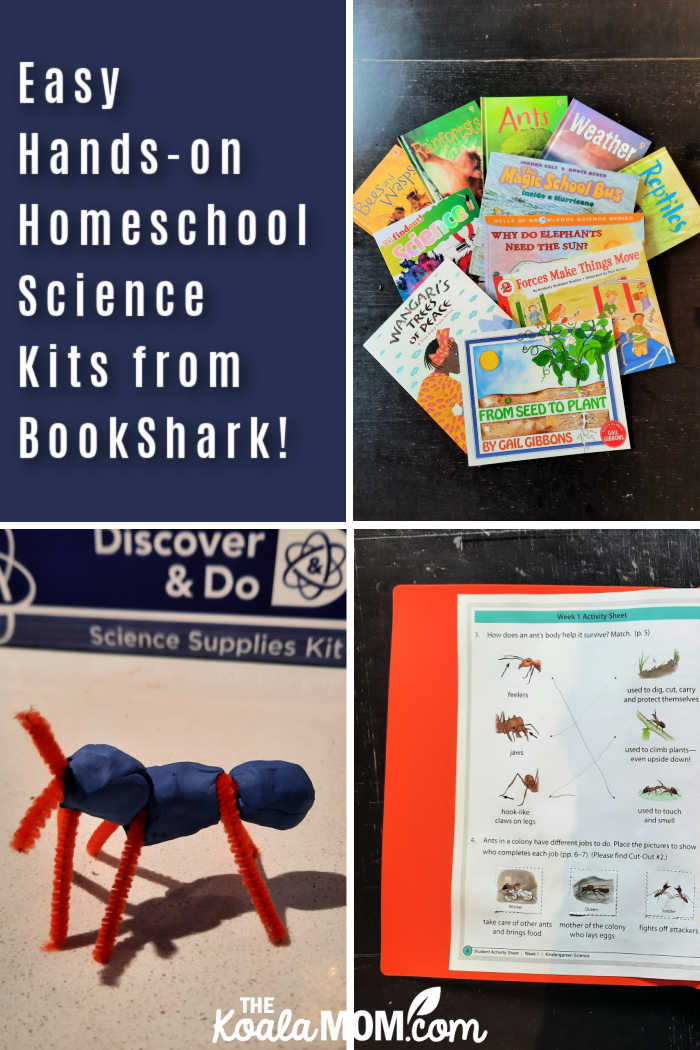
I received compensation for my time in writing this post; all opinions expressed remain may own.
Books, Books, Books!
The first thing that caught my eye when we unboxed our BookShark homeschool science kit was the books. My kids love books. The girls are all voracious readers who can often be found planted on the couch with their noses in a book. BookShark Science Level A is a literature-based curriculum, meaning that each kit is centered around a collection of great books. Many of them are Usborne or DK Books, which we frequently use in our homeschool already.
Over this year, Pearl will read:
- Ants (Usborne)
- Weather (Usborne)
- Bees and Wasps (Usborne)
- Reptiles (Usborne)
- Rainforests (Usborne)
- The Magic School Bus Inside a Hurricane
- DK FindOut! Science
- Forces Make Things Move by Kimberley Brubaker Bradley
- Wangari’s Trees of Peace: A True Story from Africa by Jeanette Winter
- From Seed to Plant by Gail Gibbons
- Why Do Elephants Need the Sun? by Robert E. Wells
BookShark Science Level A also includes an Instructor’s Guide and a book of Kindergarten Science Experiments. The Instructor’s Guide is hole punched to be put in a binder, and includes weekly lesson plans as well as the consumable activity sheets (along with answer keys) for your child. Kindergarten Science Experiments is a full-colour book with more information about the topics being covered and specific hands-on activities to help kids learn.
Check out my unboxing video on YouTube to see each book, plus the first few activities in the curriculum!
Unit One: Ants
The first topic covered in BookShark Science Level A is ants. Now, we have a bit of experience with ants as they like attempting to move in with us every summer. We live in a ground-floor condo and throughout the summer, we often woke up (or came home to) a line of ants parading down the hallway and into the kitchen. Jade, Pearl and Joey had fun catching ants, letting them run around their hands, and then naming their “pet” ant while I chased down all its relatives. Currently, we have no ants inviting themselves inside to join the science experiments, but Pearl has still enjoyed learning more about them.
Our unit on ants began with reading a few pages of Ants. Pearl then completed the activity sheets provided, which included circling answers, cutting and gluing, and writing (or dictating) brief responses. At the end of each week, we did a hands-on experiment that helped her really grasp what she’d learned. For example, the first week’s experiment was to make kinetic sand and then try to make tunnels through it like an ant would. The second week’s experiment was to make an ant with clay and pipe cleaner and see how many legs he could stand on, demonstrating how ants walk.
As I mentioned, Pearl thoroughly enjoyed the book, activity pages, and experiments. Each day’s lesson was fun and easy, yet she (and I!) learned a lot about ants. (Did you know that some ants actually hatch as larvae, then go into a cocoon like butterflies and emerge as adult ants after a few weeks? I didn’t!) In fact, Pearl was having so much fun with science that we may have done multiple lessons in one day because she wanted to keep reading and doing the activities.
An Easy-to-Use Homeschool Science Curriculum
I am super impressed with this science curriculum. Any curriculum that engages and excites the student while also being easy to use for the teacher is a winner in my books. BookShark Science Level A ticks off every single box for what I want to find in a homeschool curriculum.
Easy to Use
I have to say, when I first pulled the Kindergarten Science Experiments and Instructor’s Guide out of the box, they looked a bit overwhelming. Each of them is at least an inch thick. I wondered how much reading and prep I’d have to do for Pearl’s lessons each day. I was so happy when I flipped open the Instructor’s Guide and found it clearly laid out—ready for you as the mom and teacher to open-and-go.
Each week has a suggested schedule listing the book to read, the activity pages to complete, the experiment to do, and the supplies needed for the week. There’s space for you to write your own notes. There’s a brief “lesson backgrounder” for each day, which provides some extra instruction or facts to discuss with your child before or after reading the picture book. The activity pages are then provided with the answer key. Each week has about three pages in the instructor’s manual; each topic will take about a month to cover.
One thing I noticed right away when I glanced at the schedule is that the BookShark homeschool science kit is built around a 4-day week. In the “quick start” guide, they explain that this is “designed to save one day a week for music lessons, sports, field trips, co-ops or other extra-curricular activities.” I love that! My favourite curriculum are all built around a 4-day week and that was how we homeschooled for many years.
Multi-Age Friendly
As a homeschool mom with multiple kids, I like to find curriculum that can be used for multiple ages. This makes it easier for me to plan their activities, as I can teach something once to two or three kids instead of teaching three separate things to three separate students. The BookShark homeschool science kits are based on age levels, rather than grade levels. You could move up or down a level to select the topics / books that would interest your student more, or choose the level that best spans the ages / grades of your children.
BookShark Science Level A is intended for ages 5 to 7. In the instructor’s manual, it does say this is Kindergarten science. It is intended for a beginner student, who may need some help with the activity pages (it’s suggested that the parent write out responses for the child). At the same time, an older child (like Jade) could easily read the book and complete the activity pages on her own.
I chose this level for Pearl because she’s turning 6 this school year. As I mentioned, both Joey (age 3) and Jade (age 8) have been watching Pearl do her science. I could easily do this curriculum with all three of them. (This year, however, I decided to have Lily and Jade work on their science together with a different curriculum.) For example, Jade could read the books to Pearl and then they could complete the activity pages together. Or I could do the read-aloud and then order an extra set of activity pages so that they could each do their own.
And YES, extra consumables are available to order on the website! So I could also do this science kit again in a couple years with Joey. I’m not a huge fan of having the activity pages included in the instructor’s manual. I’ve been taking the activity pages out and putting them in a separate duotang for Pearl to complete. I was happy to see that it is possible to reorder the consumables for each science kit so you can reuse the curriculum with your next kids or use it for multiple kids.
Hands-on Experiments
One of the hardest things about teaching science is the experiments. Between (a) the mess and (b) finding all the supplies needed, the idea of experiments usually makes me shudder. (And in talking to homeschool moms, I know I’m not alone!) So when I unboxed our BookShark order and found the Discover & Do science kit, I was very happy. Okay, there’s still gonna be a bit of a mess for some experiments (like making kinetic sand!) but most of the supplies required for the experiments are included.
I’m not gonna have to buy 30 plastic cups at the grocery store just because we need two for an experiment, or track down a section of plastic tubing for myself, or even make a run to the dollar store for pipe cleaners and googly eyes. That’s all in our experiments box, just waiting for us to open it up and create something. And the kids can’t wait to open it up and create something—I’ve had to guard the box carefully when I open it, otherwise they all start grabbing something and asking me, “What’s this for?” (I don’t know yet!!! We haven’t gotten to that experiment but we’ll find out!) It creates a great sense of excitement about the year and doing everything included in this box.
BookShark Virtual
New this year is BookShark Virtual, an online platform to accompany your literature-based homeschool science kit. When you pair your BookShark print curriculum with a Virtual seat, parents and students get cool online features like assessment, grading, and accountability—accessible via mobile or desktop!
The best way to understand BookShark Virtual is to try it yourself. The first three weeks of every Virtual course are available for free just like the Instructor’s Guide samples always have been. Watch the demo videos to get your bearings, and then take it for a spin. Let your child take a peek, too! If you are doing homeschooling on the go or as a working parent, BookShark Virtual would be a great solution for you.
Final Thoughts on the Homeschool Science Kit
Buy it. Just hop over to the website, find the level suitable for your children, and order it now. It’s fun, it’s hands-on, it’s easy to use. Your kids will love it and you will love it and you will both learn a lot this year about whatever topic is included in your homeschool science kit.
You can download samples of each level on the website, to get a better idea how the curriculum works and what would be suitable for your child. If you’re not sure whether the BookShark homeschool science kits will meet your local science requirements for each grade level, you can look at the scope and sequence (or send them to your homeschool teacher). You can also request a catalogue if you prefer that to browsing online.
I can’t believe I didn’t discover BookShark when my older kids were younger, but I’m hooked now. The BookShark science packages go right up to ages 16 so you can use these until your kids are in junior high school and studying tough subjects like chemistry and physics.
GIVEAWAY!!!
Enter to WIN a your choice of Levels A to F, including one Virtual seat. Giveaway is open to residents of the US only. Use the widget below to enter.
Have you used any BookShark homeschool science kits with your children? Which was your favourite topic or level?

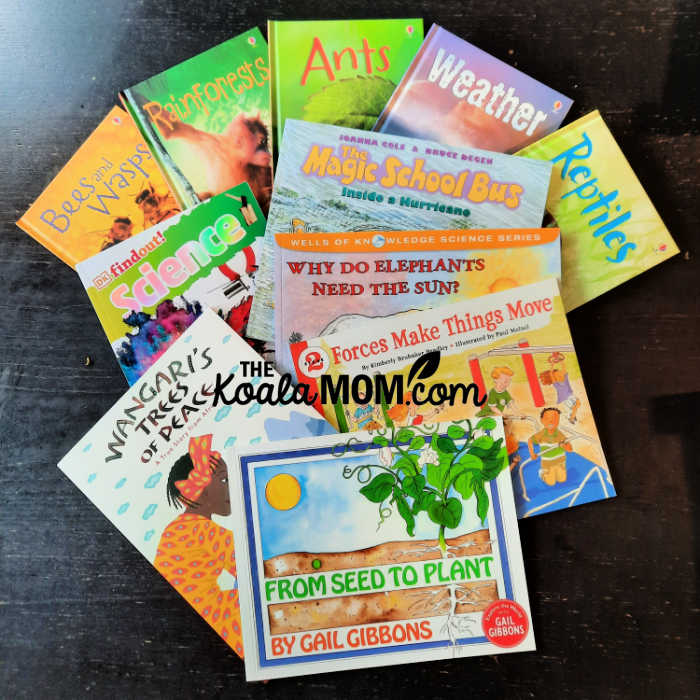
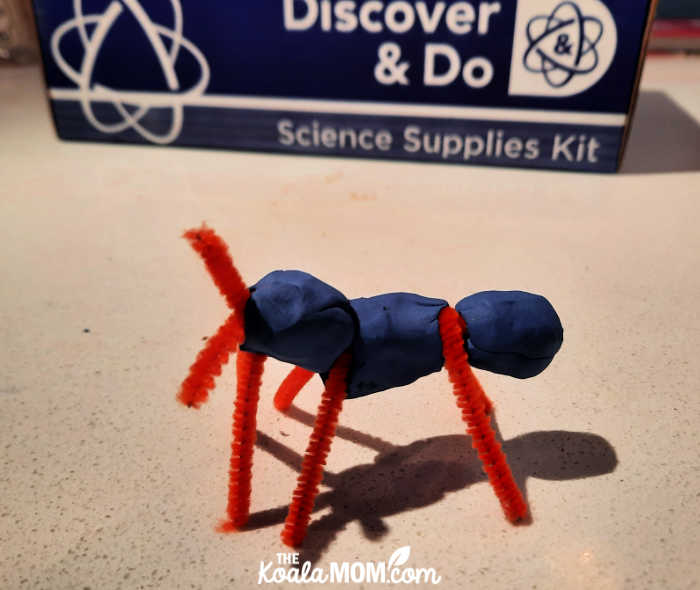
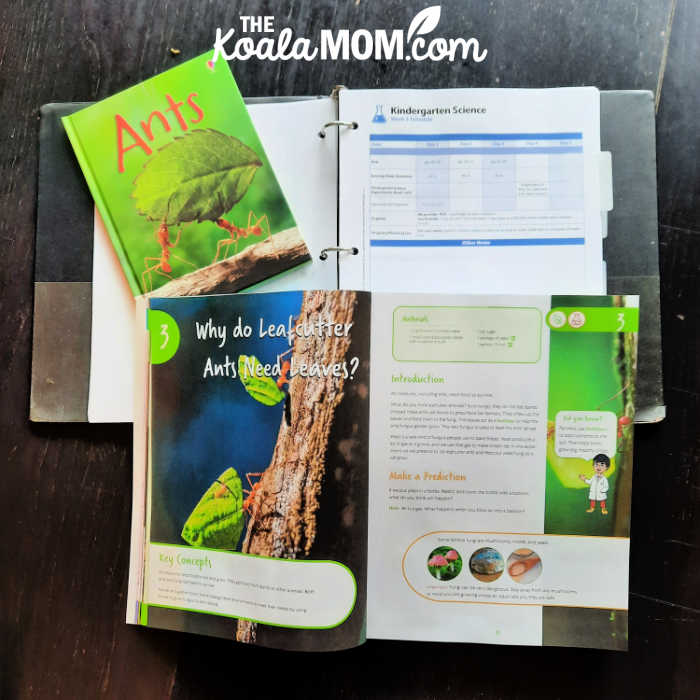
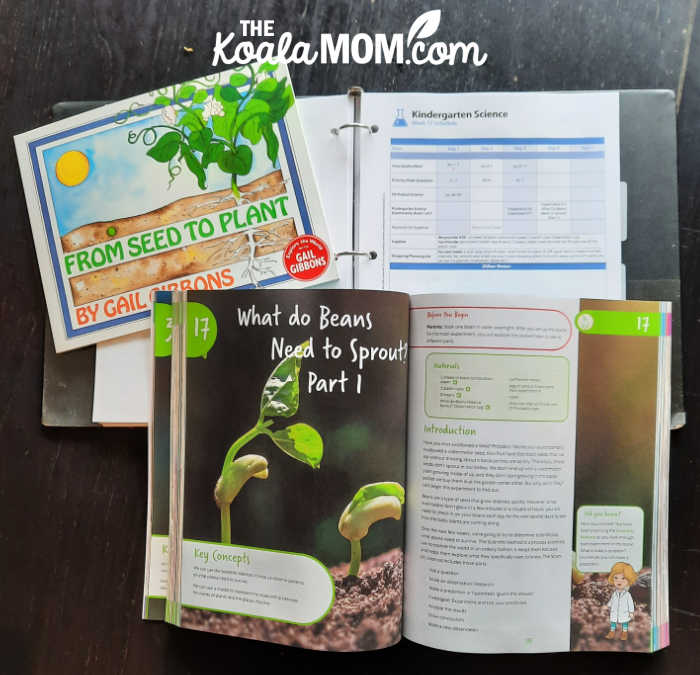
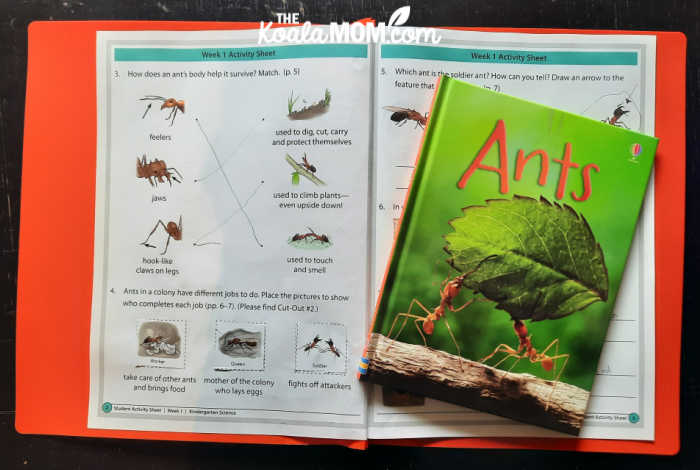
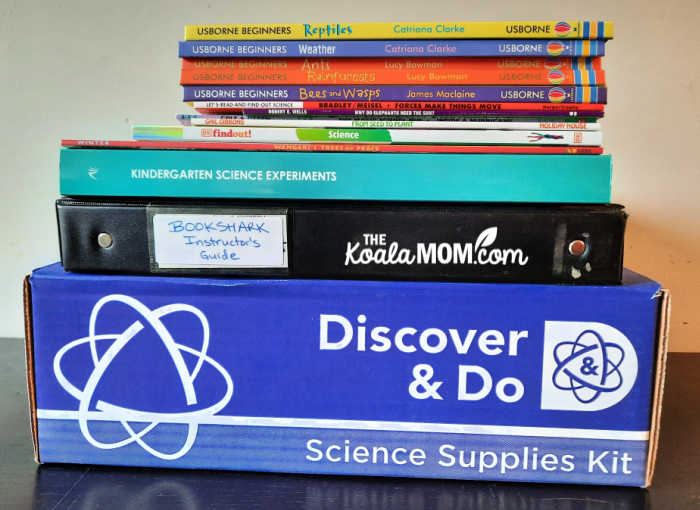
No Responses Yet